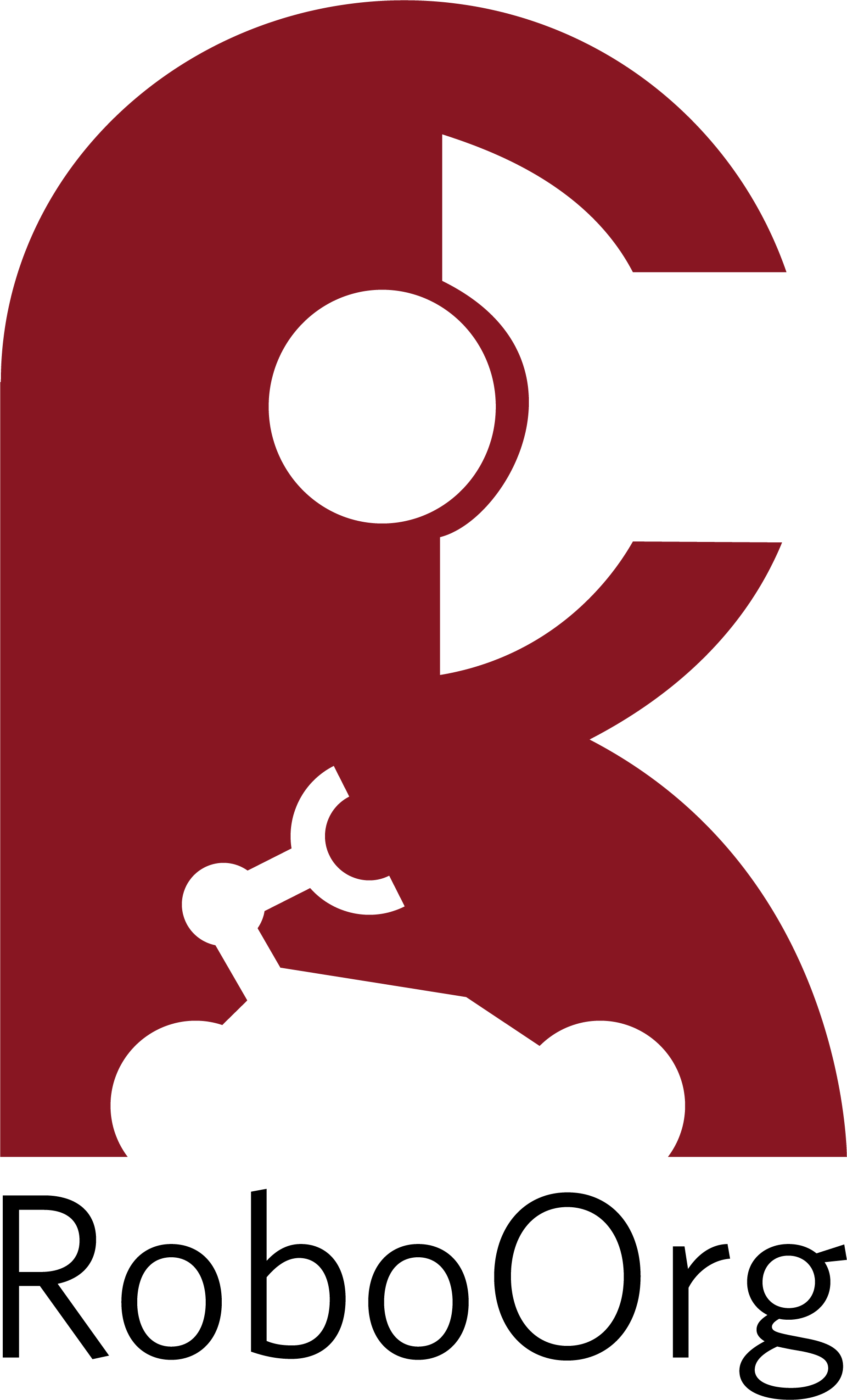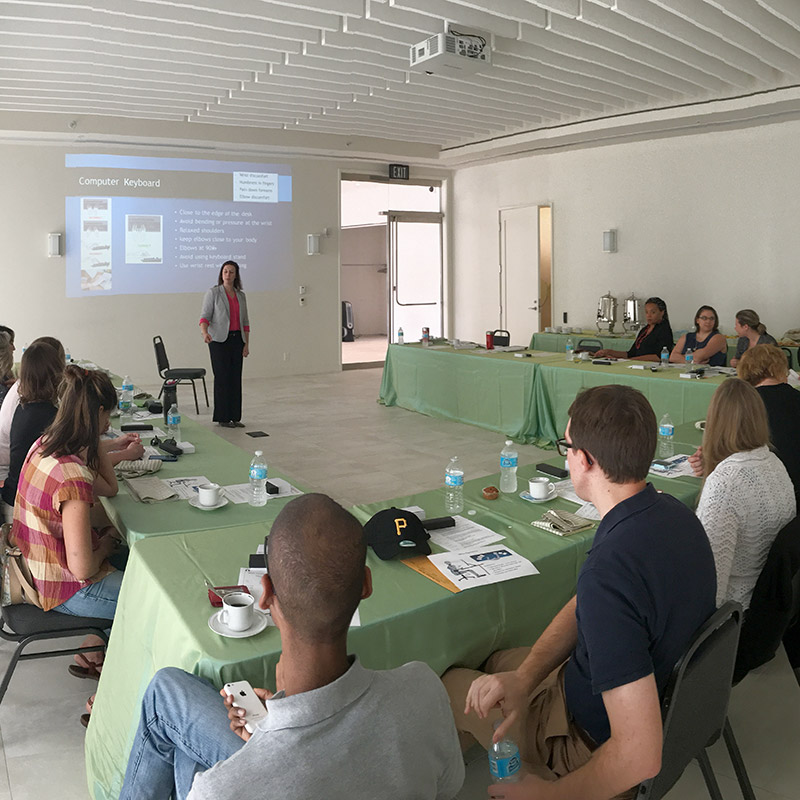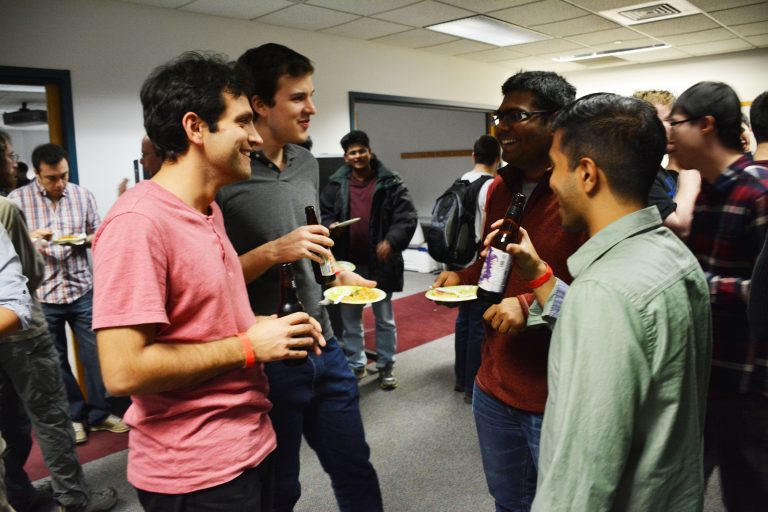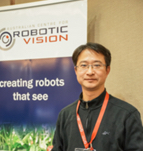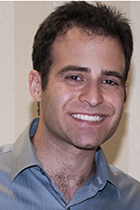Fun with Fluids
Abstract: Visual simulation of fluids has become an indispensable tool for computer graphics. Many fluid phenomena can be simulated by solving Navier-Stokes equations. In computer graphics, the NS equations are mostly used for simulating smoke, water and fire. However, it is useful for other different purposes. In this talk, we show our usage of [...]
Carnegie Mellon University
Training Strategies for Time Series: Learning for Prediction, Filtering, and Reinforcement Learning
Abstract: Data driven approaches to modeling time-series are important in a variety of applications from market prediction in economics to the simulation of robotic systems. However, traditional supervised machine learning techniques designed for i.i.d. data often perform poorly on these sequential problems. This thesis proposes that time series and sequential prediction, whether for forecasting, filtering, [...]
Panel Discussion: “Robotics, Pittsburgh and the End of Work”
As one of the test sites for Uber’s driverless cars, Pittsburgh is frequently hailed as a city of the future. And indeed, some economists predict that robots will outnumber human workers as early as 2040. At this panel will talk about how we can plan for this seismic change in our economy and way of [...]
Dinner Reception: “Robotics, Pittsburgh and the End of Work”
After the “Robotics, Pittsburgh and the End of Work” talk, head over the lounge outside of the Giant Eagle auditorium, A51 Baker Hall, for a dinner reception from 6-7 pm.
“Love Your Work”
Kathi Weeks is Professor of Women’s Studies at Duke University and writes about the intersection of feminism and labor. In her talk about anti-work politics in the age of “love your work,” Weeks Livingston argues for a Universal Basic Income (UBI) and a future in which we leave the Protestant work ethic behind.
Robotics Institute Faculty Lunch
By Invitation Only - Robotics Institute Faculty Lunch - Please arrive by 11:45AM, talk will begin promptly at 12:00PM.
Carnegie Mellon University
Expressive Real-time Intersection Scheduling
Abstract: Traffic congestion is a major annoyance throughout global metropolitan areas. This talk will present Expressive Real-time Intersection Scheduling (ERIS), a schedule-driven control strategy for adaptive intersection control to reduce traffic congestion. ERIS maintains separate estimates for each lane approaching a traffic intersection allowing it to more accurately estimate the effects of scheduling decisions than [...]
Challenges Facing Computational Face
Abstract: Recent advances in computational face research make possible a growing range of scientific, behavioral, and commercial applications. Many companies are focusing on the future of computational face products and services, but number of critical research questions remain to be solved. These include 3D face alignment from 2D image, face analysis under extreme pose variation [...]
Modeling Human Movements for Robotics
Abstract: Creating realistic virtual humans has traditionally been considered a research problem in Computer Animation primarily for entertainment applications. With the recent breakthrough in collaborative robots and deep reinforcement learning, accurately modeling human movements and behaviors has become a common challenge faced by researchers in robotics, artificial intelligence, as well as Computer Animation. In this [...]
Don’t forget to have fun
Abstract: I like to think that robots should be rational agents, modeled on human behavior. I teach a course about using optimization to plan over time by maximizing utility. I note that a series of Nobel Prizes in Economics, starting with CMU's own AI pioneer Herb Simon and including one to Daniel Kahneman and this [...]
RoboOrg Board Games
Board game night in RoboLounge with pizza and soda! We will be playing a bunch of games including Settlers of Catan, Codenames, Coup, Reformation and more!
What Matters for Deformable Object Manipulation
Abstract: Deformable objects such as cables and clothes are ubiquitous in factories, hospitals, and homes. While a great deal of work has investigated the manipulation of rigid objects in these settings, manipulation of deformable objects remains under-explored. The problem is indeed challenging, as these objects are not straightforward to model and have infinite-dimensional configuration spaces, [...]
RoboOrg FIFA 17 Tournament
Kicking off (pun intended) RoboOrg video game tournaments with FIFA 17, food and sodas! Sign up at this link or just show up the day of. Bring a healthy competitive spirit because we have some serious players!
Carnegie Mellon University
Scaling up Self Supervised Robot Learning
Abstract Robot learning holds promise in alleviating several real world problems, by performing complex behaviors in complex environments. But what is the right way to train these robots? Our methods on self supervision shows encouraging results on several tasks like grasping objects, pushing objects and even flying drones. One key challenge with these methods is [...]
Bayesian Eigenobjects: A Unified Framework for 3D Robot Perception
Abstract: Robot-object interaction requires several key perceptual building blocks including object pose estimation, object classification, and partial-object completion. These tasks form the perceptual foundation for many higher level operations including object manipulation and world-state estimation. Most existing approaches to these problems in the context of 3D robot perception assume an existing database of objects [...]
Carnegie Mellon University
Planning for a Small Team of Heterogeneous Robots: from Collaborative Exploration to Collaborative Localization
Abstract: Robots have become increasingly adept at performing a wide variety of tasks in the world. However, many of these tasks can benefit tremendously from having more than a single robot simultaneously working on the problem. Multiple robots can aid in a search and rescue mission each scouting a subsection of the entire area in [...]
Staff Lunch
By Invitation Only - All Robotics Institute administrative support staff are invited to join us for our monthly lunch meeting. Speaker/topic to be announced.
Two Tales about Image Classification
Abstract: This talk tells two tales about image-classification systems, both of which are motivated by the real-world deployment of such systems. The first tale introduces a new convolutional neural network architecture, called multi-scale DenseNets, with the ability to adapt dynamically to computational resource limits at inference time. The network uses progressively growing multi-scale convolutions, dense [...]
Optimizing ankle prostheses to improve walking in transtibial amputees
Abstract: With a prosthetic device, people with a lower limb amputation can remain physically active, but most do not achieve medically recommended physical activity standards and are therefore at a greater risk of obesity and cardiovascular disease. Their reduced activity may be attributed to the 10 - 30% increase in energetic cost during walking compared [...]
RoboOrg Post-Seminar Reception
Join us after Deanna Gates' RI Seminar in RoboLounge and adjoining Newell-Simon Hall 1507 to socialise with the speaker and other member's of the RI community. There will be food and drinks for all! PSRs are a good time to let off some steam, meet new people, have engaging conversations, learn new things and most [...]
Dense 3D Shape Reconstruction of Complex Dynamic Scene with a Single Monocular Camera
Abstract: In this talk, I will describe our recent work (presented at ICCV 2017) on monocular camera based 3D geometry reconstruction of a non-rigid dynamic scene. We aim to answer an open question in multi-view geometry, namely, "Is it possible to recover the 3D structure of a complex dynamic environment from two image frames captured by [...]
Learning to Visually Reason
Abstract: Visual reasoning is a core capability of artificial intelligence. It is a necessity for effective communication, planning, and for question/answering tasks. In this talk, I discuss some recent explorations into visual reasoning for question/answering, game playing and dialog. I also describe our new reinforcement learning platform ELF; an Extensive, Lightweight and Flexible research platform [...]
Carnegie Mellon University
Data Collection for Screwdriving
Abstract: As the use of robotic manipulation in manufacturing continues to increase, the robustness requirements for fastening operations such as screwdriving increase as well. To investigate the reliability of screwdriving and the diverse failure categories that can arise, we collected a dataset of screwdriving operations and manually classified them into stages and result categories. I [...]
Carnegie Mellon University
Dense Planar-Inertial SLAM for Large Indoor 3D Reconstruction
Abstract Reconstructing the dense 3D models of indoor environments in real-time is key to many robotics applications, such as navigation, inspection, and augmented reality. It is also a challenging problem due to the accumulation of drift, large amount of data, limited computation, and occasional lack of visual features. We develop an RGB-D simultaneous localization and [...]
Carnegie Mellon University
Visual Learning without Exhaustive Supervision
Abstract Machine learning models have led to remarkable progress in visual recognition. A key driving factor for this progress is the abundance of labeled data. Over the years, researchers have spent a lot of effort curating visual data and carefully labeling it. However, moving forward, it seems impossible to annotate the vast amounts of visual [...]
Carnegie Mellon University
Learning with Clusters
Abstract As machine learning becomes more ubiquitous, clustering has evolved from primarily a data analysis tool into an integrated component of complex machine learning systems, including those involving dimensionality reduction, anomaly detection, network analysis, image segmentation and classifying groups of data. With this integration into multi-stage systems comes a need to better understand interactions between [...]
Planning Algorithms for Multi-Robot Active Perception
Abstract A fundamental task of robotic systems is to use on-board sensors and perception algorithms to understand high-level semantic properties of an environment. The performance of perception algorithms can be greatly improved by planning the motion of the robots to obtain high-value observations. In this talk I will present a suite of planning algorithms we [...]
Doing a Post-doc: Should I do one? How do I find one? How do I pick? What next?
Abstract: In this talk, I will describe the ins and outs of getting a job as a post-doctoral researcher ("doing a post-doc"). I will first describe a number of reasons why one might want to do a post-doc, as well as a few reasons not to do one. I will next describe how to choose [...]
Carnegie Mellon University
Intra-Robot Replanning and Learning for Multi-Robot Teams in Complex Dynamic Domains
Abstract: In complex dynamic multi-robot domains, we have a set of individual robots that must coordinate together through a team planner that inevitably makes assumptions based on probabilities about the state of world and the actions of the individuals. Eventually, the individuals may encounter failures, because the team planner’s models of the states and actions [...]
Towards Lifelong Robot Learning
Abstract: Google Brain Robotics vision is to leverage learning to push the field of robotics forward. As such, we have engaged in research ranging in application from navigation to grasping and approach from deep RL to learning from demonstration. Fundamentally, our research is built around the core idea of lifelong learning. Our long term goal [...]
Exploring Human-Robot Trust during Emergencies
Abstract: This talk presents our experimental results related to human-robot trust involving more than 2000 paid subjects exploring topics such as how and why people trust a robot too much and how broken trust in a robot might be repaired. From our perspective, a person trusts a robot when they rely on and accept the [...]
RoboOrg Post-Seminar Reception
Join us after Alan Wagner's RI Seminar in RoboLounge and adjoining Newell-Simon Hall 1507 to socialise with the speaker and other member's of the RI community. There will be food and drinks for all! PSRs are a good time to let off some steam, meet new people, have engaging conversations, learn new things and most [...]
RI Winter Tree Decorating Administrative Staff Luncheon
By invitation only: Robotics Institute Administrative staff are invited to join us Monday, December 4th from 12:00 noon to 2:00 pm for our annual Robotics Institute Winter Tree Decorating Administrative Staff Luncheon.
Carnegie Mellon University
Automated Collaborations Among Neighborhood-based Search Heuristics
Abstract: For this thesis, we propose to study how to automatically combine multiple neighborhood-based heuristics. For most computationally challenging problems, there exists multiple heuristics, and it is generally the case that any such heuristic exploits only a limited number of aspects among all the possible problem characteristics that we can think of. As a result, [...]
Carnegie Mellon University
Belief Space Planning for Reducing Terrain Relative Localization Uncertainty in Noisy Elevation Maps
Abstract Accurate global localization is essential for planetary rovers to reach science goals and mitigate mission risk. Planetary robots cannot currently use GPS or infrastructure for navigating, and hence rely on terrain for determining global position. Terrain relative navigation (TRN) compares planetary rover-perspective images and 3D models to existing satellite orbital imagery and digital elevation [...]








